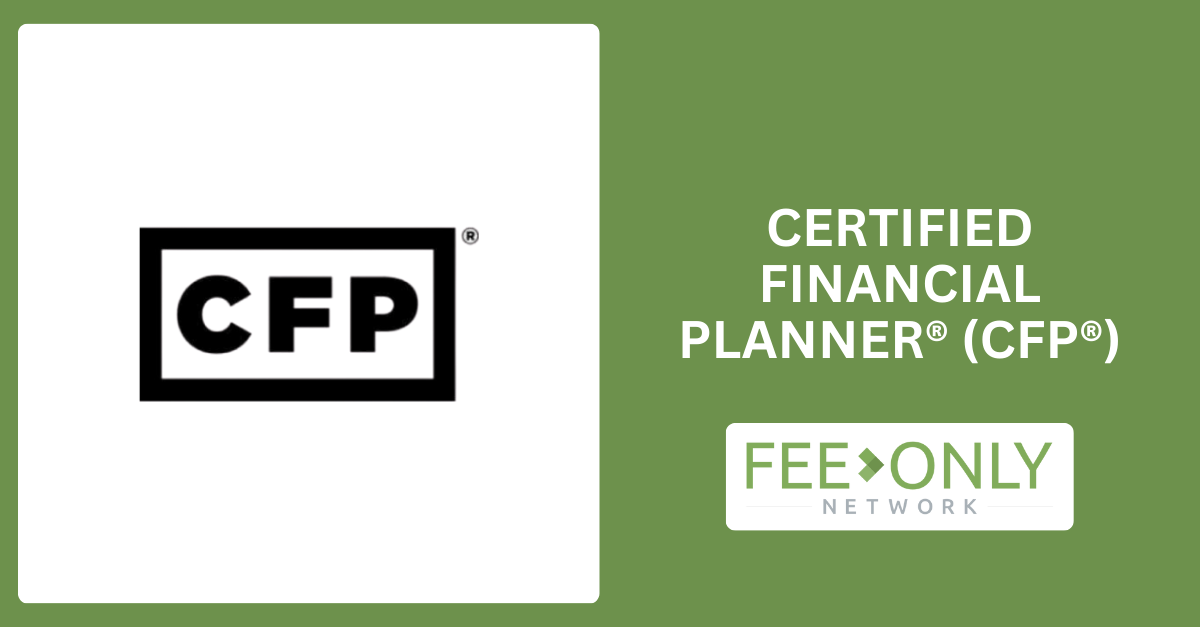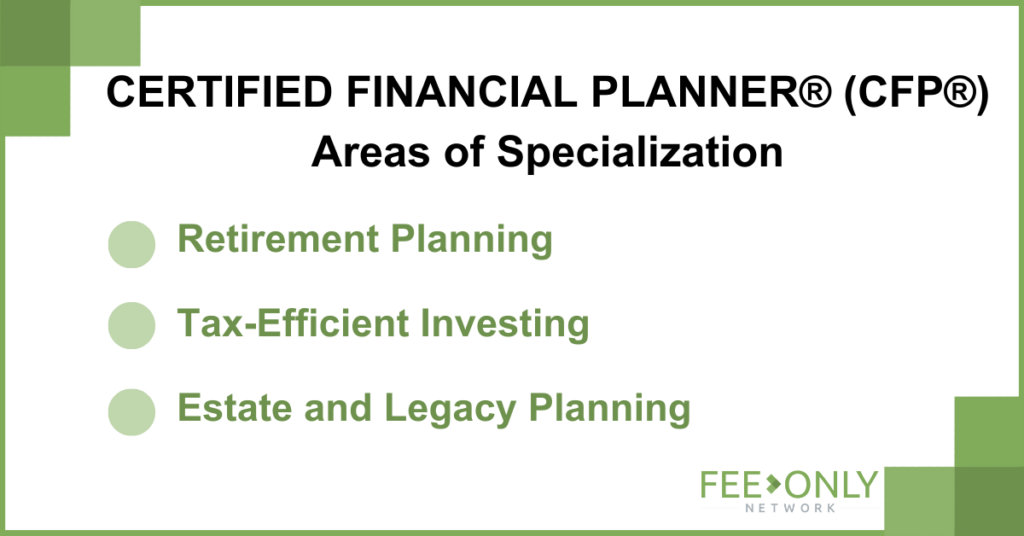
Updated: March 20, 2025

A CERTIFIED FINANCIAL PLANNER® (CFP®) is a professional designation awarded to individuals who have met rigorous education, examination, experience, and ethical standards in financial planning. CFP® professionals are equipped to provide comprehensive financial advice, encompassing areas such as investments, retirement, taxes, and estate planning. Their commitment to acting as fiduciaries ensures they prioritize their clients’ best interests.
CFP® professionals offer a wide range of financial planning services, including:
A key aspect of a CFP® professional’s role is their fiduciary duty, which legally obligates them to act in their clients’ best interests.
To earn the CFP® designation, candidates must fulfill the following requirements:
These stringent requirements ensure that CFP® professionals are well-prepared to provide competent and ethical financial advice.

Engaging a CFP® professional offers several advantages:
These benefits make CFP® professionals valuable partners in achieving your financial objectives.
A CERTIFIED FINANCIAL PLANNER® (CFP®) designation signifies a professional’s dedication to comprehensive financial planning and ethical standards. By working with a CFP® professional, individuals can receive tailored advice that aligns with their financial goals and best interests.
Governing Body: The CFP® designation is conferred by the Certified Financial Planner Board of Standards, Inc. (CFP Board).
What is the difference between a CFP® professional and other financial advisors?
While many financial advisors can offer investment advice, a CFP® professional has completed extensive education and training in comprehensive financial planning, covering areas like taxes, insurance, and estate planning. Additionally, CFP® professionals are held to a fiduciary standard, requiring them to act in their clients’ best interests.
How long does it take to become a CFP® professional?
The timeline varies, but typically it takes several years to complete the education, gain the required experience, and pass the CFP® Certification Examination.
Are CFP® professionals required to maintain their certification?
Yes, CFP® professionals must complete continuing education requirements and adhere to ethical standards to maintain their certification.
How can I verify a financial planner’s CFP® certification?
You can verify a planner’s certification status through the CFP Board’s official website, which maintains a directory of certified professionals.
Do CFP® professionals specialize in specific areas of financial planning?
While all CFP® professionals are trained in comprehensive financial planning, some may choose to specialize in areas like retirement, tax planning, or estate planning.

Allan Slider is the Founder of FeeOnlyNetwork.com, a one-of-a-kind digital platform that elevates the visibility of fee-only financial advisors, individually and collectively. Fee-Only advisors are ONLY compensated by the client and NEVER make commission by selling financial products, or receiving kickbacks from brokerage firms. Allan is a consumer & investor advocate and a 20+ year veteran of online marketing for financial advisors.

If you're seeing this message, it's because the web browser you're using to access our site is much older and no longer supported. Due to privacy and safety concerns, we don't allow older browsers to access our site. In order to access WhyFiduciary.com, please use a newer browser, like Internet Explorer 10 or above, Google Chrome, or Mozilla Firefox.
Download a newer browser